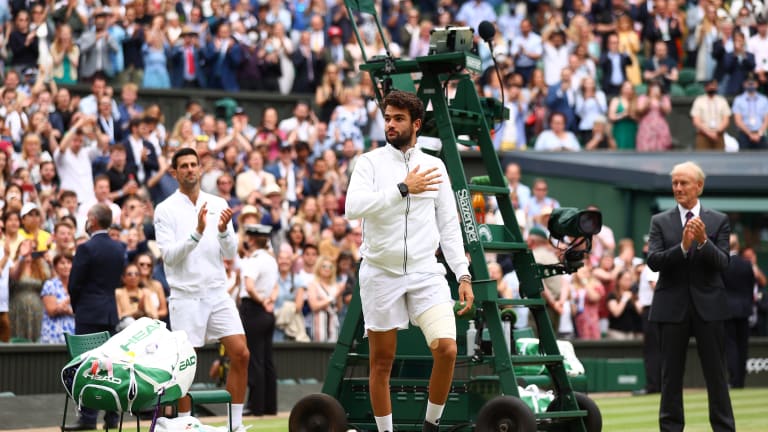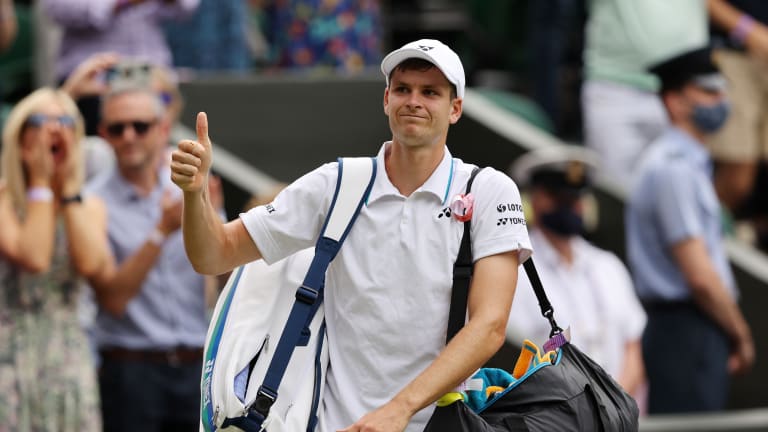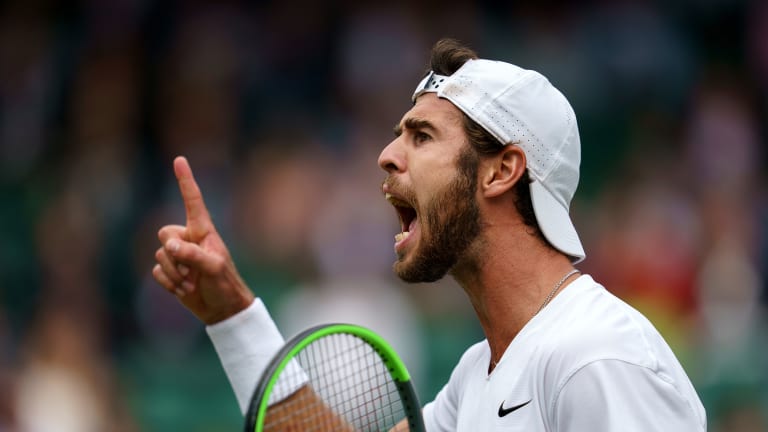Wimbledon
Wimbledon's surprise party for 10,000: What we'll remember
By Jul 12, 2021Wimbledon
Wimbledon to replace line judges with electronic line calling from 2025
By Oct 09, 2024Wimbledon
The amazing journey of Henry Patten from IBM data logger to Wimbledon doubles champion
By Jul 16, 2024Wimbledon
Hsieh Su-Wei, Jan Zielinski win mixed doubles title at Wimbledon
By Jul 15, 2024Wimbledon
Why Wimbledon Endures
By Jul 15, 2024Wimbledon
Novak Djokovic seeks 2024 answers for Alcaraz and Sinner after great effort: 4 ATP Wimbledon takeaways
By Jul 14, 2024Wimbledon
Carlos Alcaraz is a champion establishing how high he will climb with latest Wimbledon title
By Jul 14, 2024Wimbledon
Nicolai Budkov Kjaer makes history in winning junior boys' Wimbledon title; Renata Jamrichova wins girls' title
By Jul 14, 2024Wimbledon
Carlos Alcaraz beats Novak Djokovic again in Wimbledon final for fourth Grand Slam title
By Jul 14, 2024Wimbledon
For Jasmine Paolini, Barbora Krejcikova was one forehand and one serve too good in the Wimbledon final
By Jul 13, 2024Wimbledon
Wimbledon's surprise party for 10,000: What we'll remember
Spectator numbers swelled to five digits by the end of the fortnight—a welcome return to a semblance of normalcy following the brutal pandemic lockdowns.
Published Jul 12, 2021
Advertising
Advertising

"He's the Italian Hammer," Djokovic said of Berrettini.
© Getty Images
Advertising
Advertising
Advertising

Hurkacz reached the semifinals despite entering the tournament with a six-match losing streak.
© Getty Images
Advertising

Khachanov and Korda set a Wimbledon record for most breaks of serve in a set.
© FREE FOR EDITORIAL USE. This image is offered licence free for editorial use only by the AELTC. It can be published on all platforms and can be archived. Copyright of All England Lawn Tennis Club. Commercial use is prohibited. ©AELTC/Jon Super